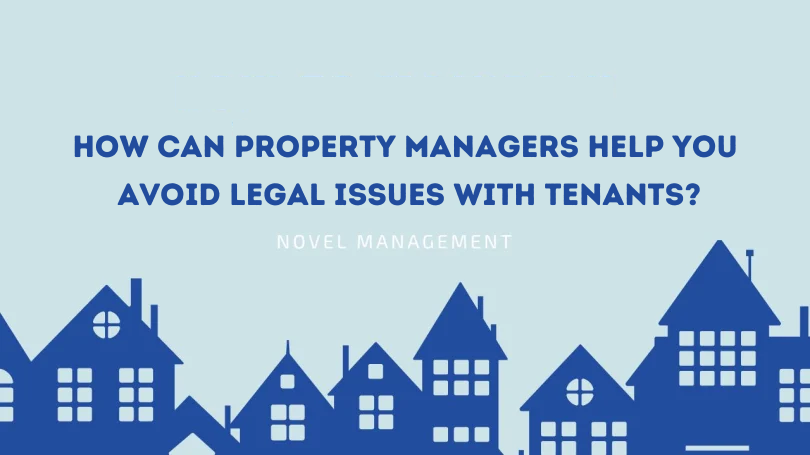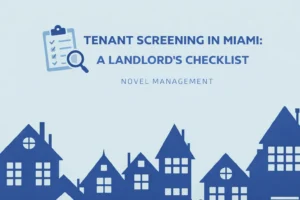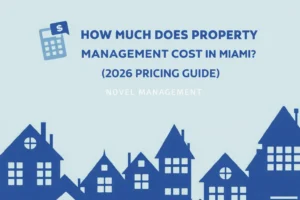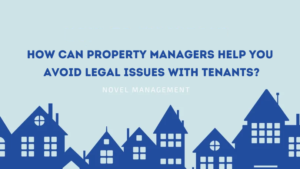As a property owner, one of your main priorities is finding responsible and respectful tenants to occupy your space. However, dealing with tenant-related legal issues can be time-consuming, stressful, and costly. This is where the expertise of property managers comes in.
Property managers are professionals who specialize in managing rental properties on behalf of the owner. They have extensive knowledge and experience in handling all aspects of tenancy, including legal matters. With their expertise, they can help you avoid potential legal issues that may arise with tenants.
In this article, we will discuss how property managers can assist you in avoiding legal problems with your tenants. From screening potential tenants to enforcing lease agreements and handling evictions, property managers play a crucial role in ensuring a smooth and hassle-free rental process for landlords. So, let’s dive in and explore the various ways property managers can help you steer clear of legal troubles with your tenants.
Introducing Legal Issues with Tenants
Legal issues with tenants can quickly become a landlord’s worst nightmare. These problems can range from minor disagreements to full-blown lawsuits, depending on the severity of the situation. Some common legal issues that landlords face with their tenants include:
Non-Payment of Rent
Non-payment of rent is one of the most common issues landlords face with tenants. This situation can lead to financial strain for landlords, especially if mortgage payments or other expenses rely on consistent rental income. Addressing non-payment requires clear communication with the tenant to understand their circumstances, whether it’s due to financial hardship or willful negligence.
A property manager can help landlords mitigate this issue by thoroughly screening tenants before signing a lease. They can also handle the delicate process of issuing reminders, late notices, and, if necessary, initiating eviction proceedings in compliance with local laws. By ensuring strict adherence to the terms of the lease agreement, property managers act as a buffer that protects landlords from unnecessary complications.
Property Damage
Property damage caused by tenants can be both frustrating and expensive to deal with. While some wear and tear is inevitable over time, intentional or careless destruction of property is a serious issue. This can include anything from damaged walls and flooring to broken appliances or fixtures.
Property managers play a critical role in minimizing property damage by conducting routine inspections and addressing issues early. They also ensure tenants are made aware of their responsibilities regarding the upkeep of the property during the lease signing. A professional property manager will also effectively document any damages and guide landlords in utilizing security deposits for necessary repairs.
Noise complaints and disturbances
Noise complaints and disturbances from tenants are not only disruptive to other residents but can also result in legal consequences. Loud parties, excessive noise, or disregarding quiet hours can lead to conflicts with neighbors and even local authorities.
A property manager can enforce lease agreements that outline expectations for noise levels and behavior, ensuring a peaceful living environment for all tenants. They can also handle complaints and mediate disputes between tenants before they escalate into legal issues.
Lease Violations
Lease violations occur when a tenant fails to comply with the terms outlined in the lease agreement. This could include anything from subletting without permission to unauthorized renovations or illegal activities on the premises.
Property managers are responsible for drafting comprehensive lease agreements that protect landlords’ interests. They can also thoroughly explain the terms to tenants during the lease signing and conduct regular inspections to ensure compliance with the agreement.
Unauthorized Pets or Occupants
Many landlords have strict policies regarding pets and additional occupants in their rental properties. However, some tenants may try to sneak in a pet or allow someone else to live with them without prior approval from the landlord.
A property manager can effectively enforce these policies by conducting thorough background checks on potential tenants and monitoring the premises for any unauthorized pets or occupants. This helps protect landlords from unexpected expenses or damages caused by unapproved individuals living on the property.
The Role of Property Managers in Avoiding Legal Issues with Tenants

Property managers serve as a middleman between landlords and tenants, handling all aspects of the rental process while keeping both parties’ best interests in mind. When it comes to avoiding legal issues with tenants, property managers play a crucial role in the following ways:
Thorough tenant screening
Property managers have access to various resources and tools that allow them to thoroughly screen potential tenants. This includes conducting background checks, verifying employment history, and checking references. By carefully vetting potential tenants, property managers can identify any red flags or warning signs that may lead to future legal issues.
Comprehensive lease agreements
Property managers are well-versed in local tenancy laws and regulations. They can draft comprehensive lease agreements that protect landlords from potential legal disputes. These agreements clearly outline the responsibilities of both parties and set expectations for behavior, payment, and property upkeep.
Effective communication
Clear communication is key to avoiding misunderstandings and legal issues with tenants. Property managers act as a liaison between landlords and tenants, handling any concerns or conflicts that may arise throughout the tenancy period. They also ensure that all communications are documented in case of future disputes.
Mediation and conflict resolution
When disagreements or disputes do occur, property managers can effectively mediate and facilitate resolutions that benefit both parties. This can help prevent minor issues from escalating into full-blown legal battles.
Legal compliance
Property managers stay up-to-date with local laws and regulations related to rental properties. They ensure that all aspects of the tenancy, from lease agreements to property maintenance, are in compliance with these laws. This helps protect landlords from any potential legal consequences.
Tips for Landlords Working with Property Managers

For landlords looking to avoid legal issues with tenants, partnering with a professional property manager can be highly beneficial. Here are some tips for working effectively with a property manager:
- Conduct thorough research and choose a reputable property management company or individual.
- Clearly outline expectations and responsibilities in the contract between you and your property manager.
- Communicate regularly and clearly with your property manager about any concerns or updates related to the rental property.
- Trust their expertise and experience in handling tenant-related issues.
- Be open to feedback and suggestions from your property manager on ways to improve the rental process.
- Keep lines of communication open and address any potential issues early on to prevent them from escalating.
By following these tips and working closely with a property manager, landlords can greatly reduce the risk of legal issues with tenants. Property managers bring a level of professionalism, expertise, and experience that can help protect landlords’ investments and ensure a positive rental experience for all parties involved.
Common Mistakes to Avoid as a Landlord
While property managers can greatly assist landlords in avoiding legal issues with tenants, there are some mistakes that landlords should avoid making themselves. These include:
Not conducting thorough tenant screenings: Skipping background checks or not verifying references can lead to potential legal problems down the line.
Failing to address maintenance and repair issues promptly: Ignoring tenant complaints about necessary repairs or maintenance can result in legal action from frustrated tenants.
Violating fair housing laws: Landlords must adhere to fair housing laws and cannot discriminate against potential tenants based on factors such as race, religion, gender, or disability.
Neglecting proper documentation: It is essential for landlords to keep records of all communication and agreements with tenants to protect themselves in case of a legal dispute.
By avoiding these common mistakes, landlords can maintain a positive and legally compliant relationship with their tenants. Partnering with a property manager can also help prevent these errors and protect the interests of both parties involved.
FAQs
What legal requirements must property managers follow under the Fair Housing Act?
Property managers must ensure compliance with the Fair Housing Act by avoiding discrimination based on race, color, religion, sex, disability, familial status, or national origin when setting lease terms or screening tenants.
How can property managers handle property management legal issues effectively?
Property managers must stay informed about state and local laws, ensure leases align with legal requirements, and address legal issues such as eviction procedures or rent payment disputes by seeking legal counsel when necessary.
What role does financial management play in avoiding property management legal issues?
Proper financial management, including accurate records of rent payments and maintenance expenses, helps property managers comply with legal requirements and resolve disputes transparently if issues arise.
How should property managers address maintenance requests to meet legal requirements?
Property managers must respond to maintenance requests promptly to ensure compliance with state and local laws requiring habitable conditions in rental units, reducing potential legal liability.
What eviction procedures must property managers follow to stay compliant?
Property managers must adhere to state and local laws for eviction procedures, which include providing proper notice and following court-mandated steps. Seeking legal counsel can ensure the process is handled correctly and fairly.
Conclusion
Landlords can greatly benefit from working with property managers to avoid legal issues with tenants. By utilizing their expertise and experience, implementing effective communication strategies, and staying compliant with laws and regulations, landlords can ensure a smooth and hassle-free rental process for both themselves and their tenants.
If you are a landlord looking to avoid legal issues with tenants, partnering with a property manager can greatly benefit you. Check out our website for professional and comprehensive property management services. Visit Novel Management today!




